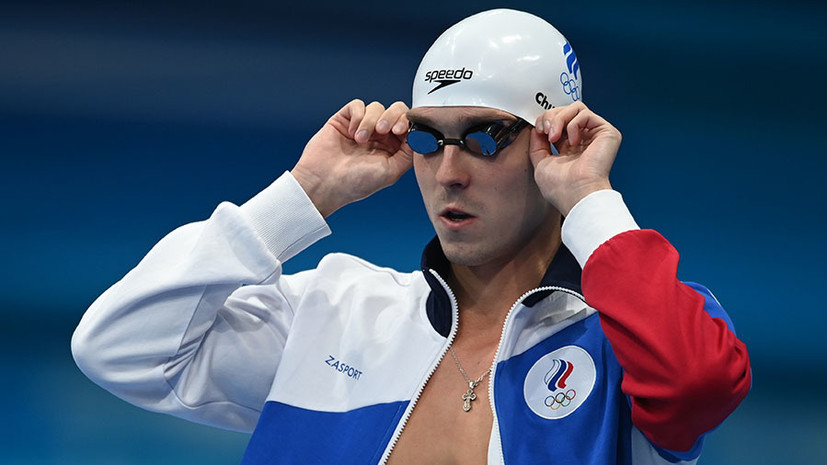The Olympic swimming tournament started with preliminary heats on Saturday and turned out to be extremely disappointing for Russian fans: European champion Martin Malyutin, like the second Russian participant in this distance, Alexander Egorov, failed to qualify for the final of the 400 m freestyle distance. Failed to break into the ranks of the best and girls in the 4x100 m freestyle relay. Well, on Sunday, Russian athletes were unconvincing in the semifinals of the 100-meter butterfly for women and breaststroke for men.
In the long distance freestyle, as well as in complex swimming, Russia was not very lucky at the Olympics: the nostalgic exception was Evgeny Sadovy's rabbit victory at the 1992 Games in Barcelona, just too much water has flowed under the bridge to remember her now.
But just in Tokyo, the fans were waiting for sensations from two freshly baked European champions: Ilya Borodin - in the complex and Martin Malyutin - in the "long" crawl.
After Borodin was overtaken by the misfortune in the form of a positive test for COVID, we could only grieve: if Ilya had repeated in Tokyo the result with which he finished at the continental championship in May (4.10.02), he could have become the second in Tokyo.
And, perhaps, he could even have been able to compete with Chase Kalish: the American won his gold medal on Sunday with not the most transcendental time of 4.09.42.
Only Malyutin remained in the status of the last Russian hope, but not for long: the result shown by the swimmer in the preliminary swim on Saturday (3.49.49) was more than five seconds worse than the time shown at the May continental championship.
In other words, with the peak of the form, the coach and the athlete clearly missed: Martin did not make it to the final.
At one time, the outstanding coach Gennady Turetsky noted that, speaking at competitions, it is very important for a swimmer to swim quickly from the very first start.
Super-effort, as it were, shakes up the body, turns it on, switches to a more active mode of operation.
And it sets a certain level that you need to try to increase from start to start.
Regardless of whether the distance is profile for the athlete or not.
The Russian breaststrokes Anton Chupkov and Kirill Prigoda did not work out with this.
They twice (in the preliminary competitions and the semi-finals) swam worse than in the April Olympic selection, so the matter did not reach the final in principle.
At the 2019 World Championships, which was held in Korean Gwangju, Chupkov remained eighth at the 100m, but his coach Alexander Nemtyrev said there that he and the athlete were working on the 100m.
“Moreover, Anton's result at this distance is slowly growing.
It is already good for a breaststroke player to swim out on a “hundred” out of a minute, but our personal record is close to 59 seconds.
At last year's European Championships, Anton swam in the hundred-meter race for 59.06 and was third.
In Gwangju, it turned out a little worse, but also somewhere nearby.
It's just that we still consider the 100-meter race itself as a stage of preparation for a longer distance: raising the speed by 100 automatically means raising the speed by 200, ”the mentor explained.
When we started talking about the Games in Tokyo, not yet knowing that we would have to wait not two years, but three years, Chupkov's mentor added that he intends to continue this practice with his ward.
“I can say absolutely definitely: Anton and I will definitely prepare“ a hundred ”for the Olympic Games. First of all, in order to start in the relay. The relay in this case interests me much more than the personal start, to be honest. If you plan for a medal, it’s there. But to set Chupkov the task of winning something on the “hundred”, while Adam Petey exists there, is somehow not even solid ... ”, - added Nemtyrev.
After swimming the Olympic 100-meter race in the semifinals for 59.93, Chupkov suffered a purely image loss: he lost half a second to Prigoda, which means, if we talk in terms of the sports principle, he lost the right to claim a place in the combined relay.
And at the same time he made me remember the words of the head coach of the team Sergey Chepik that Anton was absolutely amazingly ready for the Olympics a year ago.
And it is not at all a fact that he has become stronger since then.
Now the world champion and record holder will have to live up to their own expectations at a distance of 200 meters.
And it is already clear that it will not be easy.

